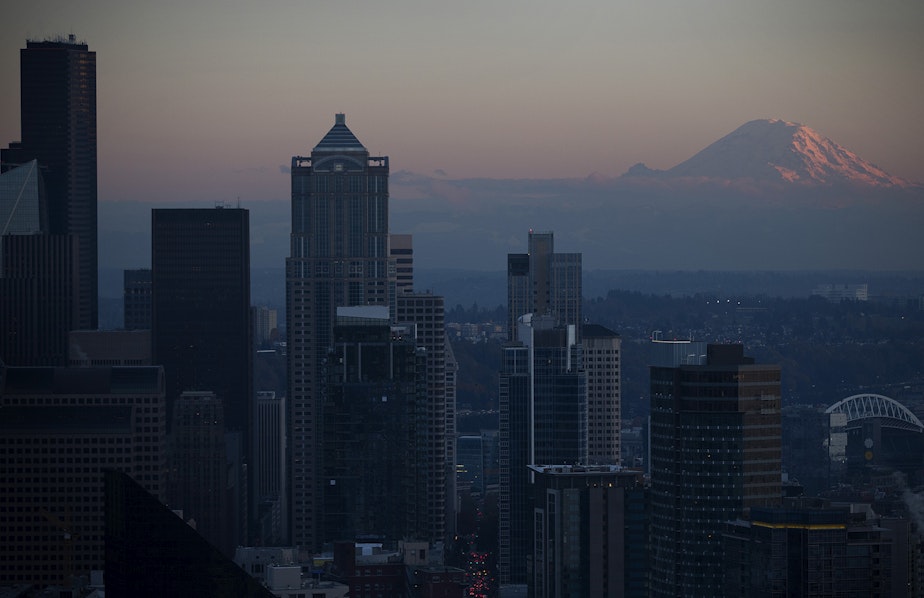Is Seattle losing its progressive edge? A look at upcoming City Council races

Is Seattle's City Council election a battle between business and anti-business forces? Progressives vs. conservatives? Or is something else going on?
Joni Balter, host of the Seattle Channel’s “Civic Cocktail,” and Q13 political analyst C.R. Douglas joined KUOW’s Angela King to examine the landscape.
C.R. Douglas: It's a very anti-incumbent, anti City Hall mood out there. It's as bad as I've ever seen and I've been covering the place for 20 years. In some ways there's already been a primary: Four incumbents have chosen to sit this one out. So the field has been winnowed even before voting has started and I think that's because most of them felt like they didn't have as good a chance in this environment.
Joni Balter: So let's drill down on that a little bit. Polling is showing that the Seattle City Council — this is a business poll that I'm referring to, done in the last week — favorables are 35%, with unfavorable at 56%. That is horrible for these folks.
Angela King: What is it specifically? Was it the Amazon head tax, is it homelessness?
Douglas: The council's approval did hit a real low after (the head tax vote) so that was a turning point. I'm not sure it was just because the general public didn't like the head tax. I don't think people are generally against raising some more money for homelessness. But there was no plan about what it was going to do and how it was going to make a difference.
Sponsored
King: Now the Chamber of Commerce wants to play big this year. They formed a PAC to back their candidates. So is that going to make a difference?
Balter: Oh, it'll make a difference. It’s hard with all these candidates to tell today who is going to emerge from a primary -- when you have five or six candidates and maybe 15,000 to 20,000 people actually voting, it’s hard to divide that number. But that said the business community already has about $700,000 with $200,000 of it coming from Amazon. And I'm quite sure Amazon is going to put in more because of this antagonism between the City Council and business. These are not conservatives, these are very liberal $15-an-hour kind of businesses. But what they want is a City Council that gets what's going on.
Douglas: I don't think you're seeing a business/anti-business dynamic. I think the backlash is a good government backlash, not a backlash against progressivism. I think the typical liberal Seattle progressive is still the majority here. Seattleites are still generous. They're voting for these levies, etc. when they see a plan that works and a track record. What they're seeing with the City Council is no plan and nothing that's working.
Balter: Yeah, voters here are liberal, but I think that they expect more governing from their City Council and less rancor.
This interview was edited for length and clarity.
Sponsored
More than 50 people have said they’re running for the seven Seattle City Council seats up for grabs this year. The filing period ends Friday, so that number of candidates could change.





